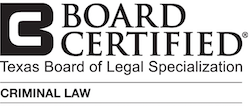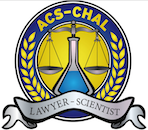Top 10 DWI Attorney Mistakes
1) NOT CHALLENGING THE TRAFFIC STOP (NOT FILING A MOTION TO SUPPRESS)
Often DWI cases can be won before ever going to trial. Police officers can make mistakes just like everyone else. If the officer made a stop that was not supported by current case law, a judge can suppress the traffic stop. Equally as important, even if the motion is not successful, it can provide an additional opportunity to examine the arresting officer. The officer can be asked a broad range of questions, and this can help the attorney prepare for trial. If the testimony at the motion to suppress hearing is different from that at trial, the less credible the testimony of the arresting officer will be in front of a jury.
2) NOT CHALLENGING LICENSE SUSPENSION
Many lawyers do not schedule the "ALR" hearing because they think it is not worth fighting. This often is not the case. If the "ALR" hearing is conducted, the attorney will have the opportunity to cross-examine the officer. If the officer says something later at trial that is contradictory to what was said at the ALR hearing, the officer can be impeached. It is a chance to lock-in the testimony of the arresting officer so there are no surprises at trial. If the officer is properly subpoenaed and does not show for the hearing, the license suspension will be dismissed by DPS. Therefore, the ALR hearing should always be scheduled and conducted.
3) ASSUMING A CASE CANNOT BE WON (OR A CHEMICAL TEST BEAT)
Many attorneys look at the facts of a DWI case and just assume the case cannot be won, especially if there is a chemical test result. If the chemical test is over a .08, many attorneys will simply advice their clients to plead guilty without any additional investigation of the facts. The reality is breath and blood tests have potential flaws, and they can be attacked in court. The standardized field sobriety tests, as well as the chemical tests, have to be administered correctly. Often they are not, and this cannot be ascertained without a thorough and complete assessment of the facts. Therefore, just "giving up" on a case without exploring all possible defenses is not an advisable option.
4) ASSUMING BREATH/BLOOD TEST REGULATIONS WERE PROPERLY FOLLOWED
The State of Texas has implemented rules and regulations concerning how both breath and blood tests are to be administered. Most attorneys just assume that these rules were followed. However, OFTEN THEY ARE NOT! An example would be how before administering the breath test on the Intoxilyzer 5000 a 15-minute waiting period MUST be conducted. The officer administering the test is supposed to watch the suspect for 15-minutes to ensure they do not hiccup, burp, or vomit, because these things can lead to a false-positive result. Another procedure that must be followed is a Radio Frequency Interference ("RFI") check. This is analogous to why airlines ask flight passengers to turn off all electronics when the airplane is taking off. I personally have tried a case where the breath test operator had no idea that an “RFI” check was supposed to be conducted. The regulations and procedures must be followed precisely and correctly. If they are not, the test results may be inaccurate.
5) NOT VISITING SCENE
Many lawyers do take the time to actually visit the scene where the traffic stop was initiated and/or where the standardized field sobriety tests were performed. Personally inspecting the scene can be extremely crucial. Why? First, the attorney could possibly identify roadside impediments that affected how the tests were performed. It may be the case that a particular location made the roadside tests more difficult to perform because of certain obstacles, etc. For example, if the area where the field tests were performed had a particular slant it could have affected the performance. Personally observing these aspects make it much easier for an attorney to ask questions when cross-examining the arresting officer.
6) NOT UTILIZING NHTSA MANUAL ON CROSS-EXAMINATION
The NHTSA Manual is the book detailing the regulations arresting officers must follow when conducting a DWI investigation. If an attorney is not well versed in everything the NHTSA manual contains, they will not be able to effectively cross-examine the arresting officer. In my opinion, every attorney practicing DWI Defense should have taken at some point the same certification the officers are given at the academy. However, very few attorneys actually take training courses themselves to become certified to administer these tests. The NHTSA manual should be scrutinized very closely by the attorney, so they will know what questions to ask the arresting officer. The NHTSA manual states very clearly "If any one of the standardized field sobriety test elements is changed, the validity is COMPROMISED!" So why is it important for your attorney to know the NHTSA manual backwards and forwards? It’s simple: if your attorney doesn’t know the training manual, they will not be very successful questioning the officer on whether the instructions were properly given. Your attorney should inspect every possible deficiency in the state’s case, including whether the tests were properly conducted according to the NHTSA guidelines.
7) NOT PUTTING CLIENT ON THE STAND TO TESTIFY
I differ in a very large respect with most attorneys on this issue. Most attorneys believe that it is incredibly unwise for a defendant to testify...EVER. While I think this may be true in many criminal cases, I disagree with the concept with a great majority of DWI cases that proceed to trial. I personally think DWI's are different than many other types of criminal cases because the arrest itself is highly discretional and left up to the interpretation of the arresting officer. A DWI charge is one of the only crimes in the Texas Code of Criminal Procedure that is totally subjective and left within the discretion of the arresting officer. While every case is different, I believe that if a DWI case is being attacked because the officer was incorrect in determining whether the accused was intoxicated, I believe it is extremely vital for the defendant to testify. I am of the mindset that it is vitally important to refute the assumption the officer made when making the decision to arrest for DWI. I have personally won many DWI trials where I've had the defendant testify. Juries have told me after the verdict that without such testimony they would have convicted. The sad reality is the "Presumption of Innocence" is all too frequently forgotten by most juries. Most attorneys do not like having defendants testify because of the uncertainty of what they will say when cross-examined by prosecutors. While this is always a risk, I believe it is also up to the attorney to properly instruct a defendant on how to avoid common pit-falls when answering tricky questions. Just like with anything in life, achieving success takes preparation. In this respect, preparing a witness to testify is no different. Most attorneys will simply advise their client NOT to testify because they do not want to go through the process of having to prepare. I agree with this assertion if it is done for a strategic reason, but I DISAGREE with this viewpoint if it is done out of laziness. It takes time to prepare a witness to testify. And if done correctly, it can make all the difference in how a case is perceived by a jury.
8) ATTEMPTING TO SHOW OFFICER LIED
The reality is police officers have very difficult jobs. They are faced with the task of patrolling our streets to help make them safe. Any error when doing their jobs can have fatal consequences. No doubt the pressure they face on a daily basis can be quite burdensome. They are faced with having to make very quick decisions without the resource of having information to rely upon. It is not too far-fetched, therefore, to believe that mistakes CAN happen. No one wants to believe that police officers may lie when testifying, and jurors may hold it against an attorney for trying to make this assumption. However, juries have an easier time believe that an arresting officer may have been mistaken.
9) NOT HIRING AN EXPERT
Often an expert in a specific area should be used when going to trial on a DWI case. Even though a good DWI Defense attorney should be well versed in all of the possible errors that could be made by the investigating officers, everything an attorney says at trial is argument, NOT testimony. Therefore, an attorney is limited with the amount of information that can be conveyed to a jury. However, assuming an expert has the proper qualifications and experience, they can communicate to the jury possible deficiencies with the state's case.
10) NOT EXPLAINING CONSEQUENCES OF A GUILTY PLEA
An attorney should advise a client regarding all the ramifications of pleading "Guilty" to a DWI charge. There are various issues that should be considered before pleading to a DWI, including possible license suspensions, jail time, fines, probation fees, higher insurance rates, decreased employment prospects in the future, and possibly even the loss of a job (particularly if your job involves a significant amount of driving). You must take all penalties into account when deciding whether to plead "Guilty" to a DWI charge, and it is the job of an attorney to fully apprise you what these might be.






















